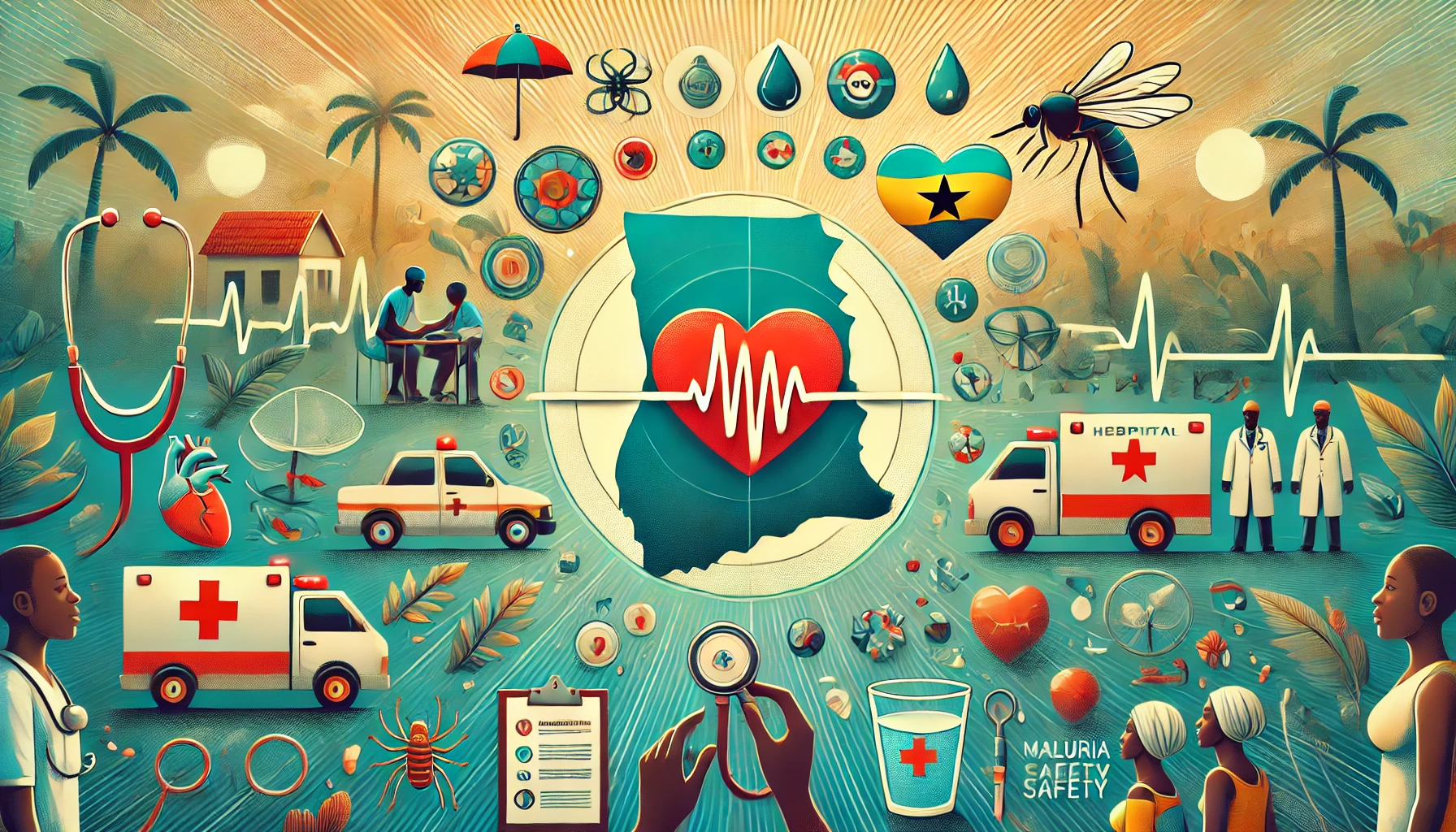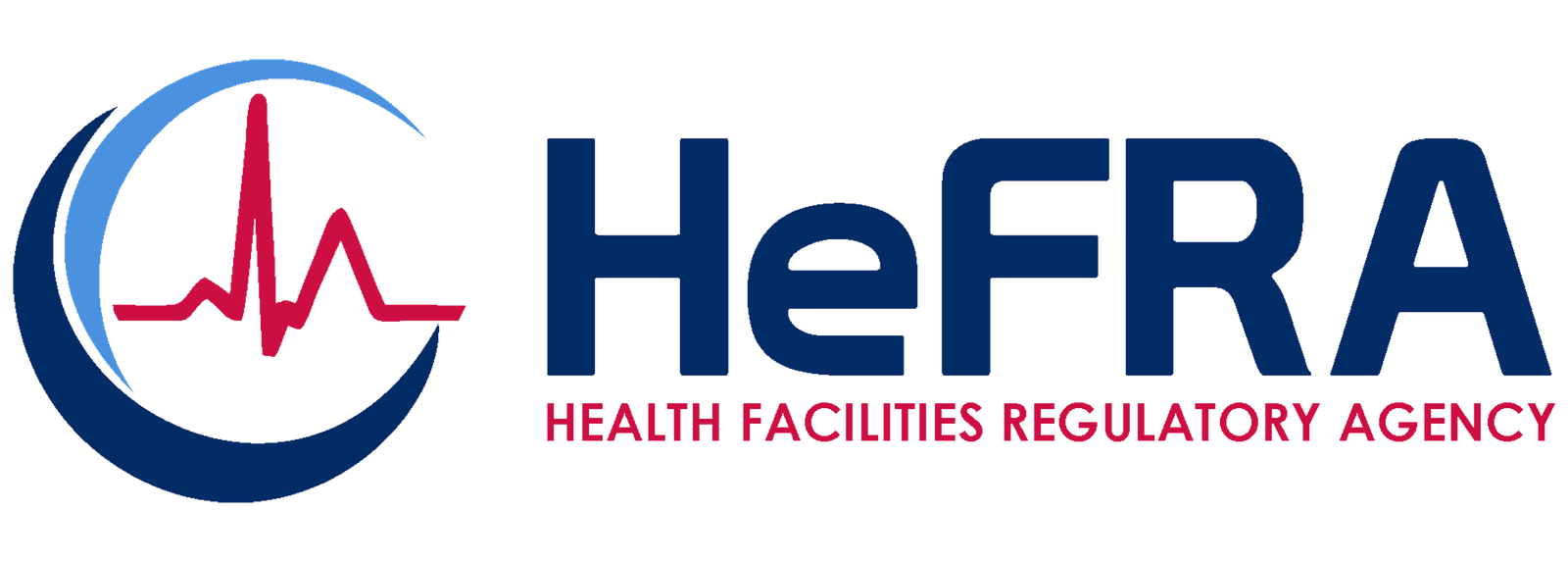
Sudden Death in Ghana: 50 Common Causes, Their Prevention, and Treatment 💀🦴⚰️
Sudden death refers to an unexpected loss of life that occurs within a short time—often minutes to hours—without prior warning or an obvious cause. In Ghana, a variety of factors—ranging from health conditions to accidents—can lead to sudden death. This article explores 50 of the most common causes, their associated risk factors, and how Ghanaians can prevent and treat them. The goal is to raise awareness and encourage early detection and proper management to reduce such tragic events.
1. Heart Attack (Myocardial Infarction)
- Explanation/Risk Factors: Occurs when blood flow to the heart is blocked. Common risk factors include high cholesterol, smoking, high blood pressure, and diabetes.
- Prevention: Regular health check-ups (e.g., at Korle Bu Teaching Hospital in Accra or Komfo Anokye Teaching Hospital in Kumasi), healthy diets, and quitting smoking.
- Treatment: Immediate chewing of aspirin if available, followed by urgent medical care for interventions like clot-busting drugs or surgery.
2. Cardiac Arrest
- Explanation/Risk Factors: A sudden electrical malfunction of the heart causing it to stop beating effectively. Triggers can include arrhythmias, heart disease, or severe electrolyte imbalances.
- Prevention: Regular screening (ECG tests) and managing underlying heart conditions.
- Treatment: Immediate CPR (Cardiopulmonary Resuscitation) and use of an Automated External Defibrillator (AED), if available.
Images are only illustrative; may not pass an academic critique
3. Hypertensive Heart Disease
- Explanation/Risk Factors: Long-term, poorly controlled high blood pressure damages the heart and blood vessels.
- Prevention: Routine blood pressure checks at local clinics or pharmacies, reducing salt intake, and maintaining a healthy weight.
- Treatment: Antihypertensive medications, dietary changes, and lifestyle modifications.
4. Cardiomyopathy
- Explanation/Risk Factors: Disease of the heart muscle, making it hard for the heart to pump blood. Causes range from genetics to infections, alcohol abuse, or untreated hypertension.
- Prevention: Regular medical check-ups, avoiding excessive alcohol, early treatment of infections.
- Treatment: Medications (such as beta-blockers), implanted devices (pacemakers), or surgery.
5. Pulmonary Embolism
- Explanation/Risk Factors: A blood clot blocks blood flow in the lungs. Risk factors include prolonged immobility, recent surgery, and certain medical conditions.
- Prevention: Regular movement during long travels (e.g., on the Accra-Kumasi highway), using compression stockings if at high risk, and staying hydrated.
- Treatment: Anticoagulants (blood thinners) and, in severe cases, surgical intervention.
6. Stroke
- Explanation/Risk Factors: Interrupted blood supply to part of the brain (ischemic stroke) or bleeding in the brain (hemorrhagic stroke). Hypertension and diabetes are major risks.
- Prevention: Control high blood pressure and blood sugar, avoid smoking, and stay physically active.
- Treatment: Rapid hospitalization for clot-dissolving drugs in ischemic stroke or surgical intervention in hemorrhagic stroke.
7. Brain Aneurysm
- Explanation/Risk Factors: A weak spot in a brain artery that bulges and can rupture suddenly. High blood pressure and smoking increase risk.
- Prevention: Routine checks if there is a family history, good blood pressure control, and avoiding smoking.
- Treatment: Surgical clipping or endovascular coiling to prevent or stop the aneurysm from bleeding.
Images are only illustrative; may not pass an academic critique
8. Severe Seizures (Epilepsy)
- Explanation/Risk Factors: Sudden electrical activity in the brain causing convulsions or loss of consciousness.
- Prevention: Adherence to anti-epileptic medications and avoiding known triggers such as sleep deprivation.
- Treatment: Consistent use of prescribed medications, regular follow-ups at neurology clinics.
9. Asthma Attacks
- Explanation/Risk Factors: Chronic lung condition where airways narrow and produce excess mucus. Triggers include dust, smoke, or cold air.
- Prevention: Avoid triggers, use inhaled preventers, and maintain well-ventilated homes.
- Treatment: Quick-relief inhalers (bronchodilators) and long-term control medications.
10. Pneumonia
- Explanation/Risk Factors: Infection in the lungs that can escalate quickly. Risk is higher in children and the elderly.
- Prevention: Good hygiene, vaccination (pneumococcal vaccine), and proper nutrition.
- Treatment: Antibiotics for bacterial pneumonia, supportive care (oxygen therapy) for viral cases.
11. Tuberculosis (TB)
- Explanation/Risk Factors: A contagious bacterial infection affecting the lungs. Overcrowded living conditions and weakened immune systems increase risk.
- Prevention: BCG vaccination at birth, early detection through screening at public health facilities.
- Treatment: Long-term anti-TB drug regimen (usually 6 months or more).
12. Malaria
- Explanation/Risk Factors: Transmitted by Anopheles mosquitoes, common in regions with standing water (e.g., the Volta Region). Severe forms can lead to cerebral malaria.
- Prevention: Sleeping under insecticide-treated nets, using repellents, and eliminating mosquito breeding sites.
- Treatment: Artemisinin-based combination therapies (ACTs), as recommended by the Ghana Health Service.
13. Meningitis
- Explanation/Risk Factors: Infection of the protective membranes around the brain and spinal cord. Often spreads in crowded places such as schools or dormitories.
- Prevention: Vaccination (Men A vaccine), good hygiene, and avoiding close contact with infected individuals.
- Treatment: Prompt use of appropriate antibiotics or antiviral medications.
Images are only illustrative; may not pass an academic critique
14. HIV/AIDS Complications
- Explanation/Risk Factors: Weakens the immune system, leading to opportunistic infections that can be fatal if not well-managed.
- Prevention: Safe sex practices, regular testing, avoiding shared needles.
- Treatment: Antiretroviral therapy (ART), available at many public hospitals across Ghana.
15. Typhoid Fever
- Explanation/Risk Factors: Spread through contaminated food or water. Untreated typhoid can lead to intestinal perforation.
- Prevention: Good sanitation, drinking clean or boiled water, frequent handwashing.
- Treatment: Antibiotics and supportive care. Seek medical attention early if experiencing high fever and abdominal pain.
16. Sepsis
- Explanation/Risk Factors: A severe reaction to infection that can lead to organ failure. Any untreated infection can progress to sepsis.
- Prevention: Early treatment of infections, good wound care, seeking medical help quickly.
- Treatment: Broad-spectrum antibiotics, IV fluids, and critical care support.
17. Diabetic Ketoacidosis (DKA)
- Explanation/Risk Factors: A serious complication of diabetes when the body produces excess blood acids (ketones).
- Prevention: Proper blood sugar control and regular glucose monitoring.
- Treatment: Insulin therapy, fluid replacement, and electrolyte management.
18. Hyperthyroidism (Thyroid Storm)
- Explanation/Risk Factors: Excessive thyroid hormone can cause a life-threatening “thyroid storm.”
- Prevention: Regular thyroid function tests if there is a family history or symptoms like palpitations.
- Treatment: Anti-thyroid medications, beta-blockers, and hospital observation.
19. Hypoglycemia
- Explanation/Risk Factors: Dangerously low blood sugar in diabetics or people with poor nutrition.
- Prevention: Eating balanced meals, monitoring blood sugar, and following doctors’ instructions on medication.
- Treatment: Immediate intake of glucose (e.g., glucose tablets or sugary drinks).
Images are only illustrative; may not pass an academic critique
20. Perforated Peptic Ulcer
- Explanation/Risk Factors: Untreated ulcers in the stomach or duodenum can perforate, causing internal bleeding and shock.
- Prevention: Limit the use of NSAIDs, reduce alcohol intake, and treat H. pylori infections early.
- Treatment: Urgent surgery and antibiotics.
21. Acute Pancreatitis
- Explanation/Risk Factors: Inflammation of the pancreas, often caused by gallstones or heavy alcohol consumption.
- Prevention: Reducing alcohol intake and managing gallbladder issues promptly.
- Treatment: Hospital admission, pain management, and IV fluids.
22. Road Traffic Accidents
- Explanation/Risk Factors: High speeds, poor road conditions, drunk driving, and disregard for safety regulations on major highways (e.g., Accra-Kumasi).
- Prevention: Strict adherence to road safety laws, use of seatbelts, and avoiding drunk driving.
- Treatment: Rapid emergency response (dial 193), trauma care, and surgery for severe injuries.
23. Falls
- Explanation/Risk Factors: Occur at home or workplaces, especially on construction sites or in high-rise buildings without proper guardrails.
- Prevention: Adequate safety measures, use of protective gear (helmets, harnesses), and well-lit areas.
- Treatment: Immediate immobilization, assessment for head injury, and surgery if there are fractures.
24. Postpartum Hemorrhage
- Explanation/Risk Factors: Heavy bleeding after childbirth, a major cause of maternal death in Ghana.
- Prevention: Regular antenatal care visits, skilled delivery services, and early detection of risk factors.
- Treatment: Medications to contract the uterus (e.g., oxytocin), blood transfusions, and surgical interventions if necessary.
25. Eclampsia
- Explanation/Risk Factors: A severe form of pre-eclampsia (high blood pressure in pregnancy) leading to seizures.
- Prevention: Regular prenatal check-ups to monitor blood pressure and urine protein levels.
- Treatment: Immediate administration of magnesium sulfate, antihypertensive drugs, and supportive care.
26. Sickle Cell Crisis
- Explanation/Risk Factors: Sickle cell disease causes abnormal red blood cells, leading to blockages in blood vessels.
- Prevention: Genetic counseling before marriage or childbirth, staying well-hydrated, and avoiding extreme temperatures.
- Treatment: Pain relief, hydration, blood transfusions, and sometimes hydroxyurea.
27. Congenital Heart Defects
- Explanation/Risk Factors: Heart abnormalities present at birth. Some remain undiagnosed until sudden complications occur.
- Prevention: Early prenatal care and screening; awareness of family history.
- Treatment: Surgical correction or ongoing cardiac care depending on the defect.
Images are only illustrative; may not pass an academic critique
28. Drug Overdose
- Explanation/Risk Factors: Misuse of prescription medications (e.g., opioids) or illicit drugs.
- Prevention: Public education on drug dangers, responsible prescribing by doctors, avoiding self-medication.
- Treatment: Supportive care, administration of antidotes (e.g., naloxone), and counseling for substance abuse.
29. Alcohol Poisoning
- Explanation/Risk Factors: Drinking large amounts of alcohol in a short time (binge drinking).
- Prevention: Avoid binge drinking, set personal limits, and seek help for alcohol dependence.
- Treatment: Supportive care, monitoring of vital signs, and hydration. Severe cases may require hospital admission.
30. Lung Cancer
- Explanation/Risk Factors: Mostly linked to smoking, second-hand smoke, and environmental pollutants.
- Prevention: Quitting smoking, avoiding industrial fumes, and using protective masks if working in polluted areas.
- Treatment: Surgery, chemotherapy, or radiotherapy, depending on the stage.
31. Leukemia
- Explanation/Risk Factors: A type of blood cancer that can progress rapidly. Risk factors include genetic predispositions and exposure to radiation.
- Prevention: Regular check-ups if there is family history; avoiding unnecessary radiation exposure.
- Treatment: Chemotherapy, targeted therapy, or bone marrow transplant.
32. Acute Kidney Injury (AKI)
- Explanation/Risk Factors: A sudden decrease in kidney function, often caused by severe infections, dehydration, heart failure, or toxins (including certain medications). AKI can lead to electrolyte imbalances, fluid overload, and cardiac arrest.
- Prevention: Adequate hydration, prompt treatment of infections, and caution with nephrotoxic drugs (e.g., NSAIDs).
- Treatment: Identify and treat the underlying cause; supportive care with fluids and electrolytes; dialysis if kidney function does not recover.
33. Drowning
- Explanation/Risk Factors: Occurs in rivers, lakes, or at beaches (e.g., Labadi Beach in Accra), often due to inability to swim or lack of safety measures.
- Prevention: Learning basic swimming skills, using life jackets, and avoiding deep or rough waters without supervision.
- Treatment: Immediate CPR, calling for emergency help, and supportive care for oxygen deprivation.
34. Electrocution
- Explanation/Risk Factors: Faulty wiring, illegal electrical connections, or working with electricity without proper training.
- Prevention: Regular inspections of electrical installations, using qualified electricians, avoiding illegal connections.
- Treatment: Disconnect power source, immediate CPR if needed, and advanced care at a hospital.
35. Poisoning
- Explanation/Risk Factors: Ingestion of pesticides, household chemicals, or contaminated food.
- Prevention: Proper labeling and storage of chemicals, strict hygiene practices, avoiding adulterated foods.
- Treatment: Specific antidotes if available, supportive care, and immediate medical attention.
36. Snake Bites
- Explanation/Risk Factors: Common in rural areas (e.g., Northern or Eastern Regions). Walking barefoot at night increases risk.
- Prevention: Wearing protective boots, clearing tall grass, using a flashlight at night.
- Treatment: Antivenom, wound care, and supportive measures at a district hospital.
Images are only illustrative; may not pass an academic critique
37. Severe Allergic Reactions (Anaphylaxis)
- Explanation/Risk Factors: A life-threatening allergic response to foods (e.g., peanuts, shellfish), medications, or insect stings. Symptoms can include difficulty breathing, swelling, and hives.
- Prevention: Knowing and avoiding specific allergens, carrying an epinephrine auto-injector if you have a known severe allergy.
- Treatment: Immediate administration of epinephrine (adrenaline), followed by supportive care in a hospital.
38. Hepatitis B Complications
- Explanation/Risk Factors: A viral infection that attacks the liver. Chronic infection can lead to cirrhosis or liver failure, causing sudden death if there is massive bleeding (variceal bleed) or acute liver failure.
- Prevention: Vaccination, safe sex practices, screening blood before transfusion, and not sharing sharp instruments.
- Treatment: Antiviral medications (e.g., tenofovir, entecavir), regular monitoring of liver function, and early treatment of cirrhosis-related complications.
39. Obesity
- Explanation/Risk Factors: Excessive body weight strains the heart and other organs. Risk increases with sedentary lifestyles and poor diets.
- Prevention: Balanced diet, regular exercise (walking, jogging) in safe public spaces like the Legon campus.
- Treatment: Lifestyle modifications (diet, exercise), medication, and in some severe cases, surgery.
40. Sedentary Lifestyle
- Explanation/Risk Factors: Lack of regular physical activity can lead to obesity, heart disease, and increased risk of blood clots.
- Prevention: Daily walks, active breaks at work, community sports (e.g., keep-fit clubs in Accra or Takoradi).
- Treatment: Physiotherapy, guided exercise programs, and behavior therapy.
41. Smoking
- Explanation/Risk Factors: Tobacco use damages the lungs, heart, and blood vessels, leading to cancers, heart disease, and stroke.
- Prevention: Avoid picking up smoking; join quit-smoking programs if already a smoker.
- Treatment: Nicotine replacement therapy, counseling, and medications to reduce cravings.
42. Chronic Kidney Disease (CKD)
- Explanation/Risk Factors: Progressive deterioration of kidney function over time, often due to diabetes, hypertension, or chronic glomerulonephritis. Untreated CKD can lead to end-stage renal disease (ESRD), where toxins build up, potentially leading to cardiac arrest or other life-threatening complications.
- Prevention: Controlling blood pressure and blood sugar, screening for kidney issues (especially if there is a family history), and staying hydrated.
- Treatment: Medications to slow progression (e.g., ACE inhibitors, ARBs), dietary modifications, regular monitoring of kidney function, and dialysis or kidney transplantation in advanced stages.
43. Acute Rheumatic Fever
- Explanation/Risk Factors: A complication from untreated strep throat or scarlet fever. Can lead to heart valve damage over time.
- Prevention: Early antibiotic treatment of strep throat, improved hygiene, and quick medical attention for sore throats.
- Treatment: Long-term antibiotics, anti-inflammatory medications, and monitoring for heart complications.
44. Atrial Fibrillation
- Explanation/Risk Factors: An irregular heart rhythm that raises the risk of stroke. Often associated with older age, high blood pressure, or heart disease.
- Prevention: Regular heart check-ups, controlling blood pressure, reducing alcohol consumption.
- Treatment: Blood thinners (anticoagulants), medications to control heart rate or rhythm, and sometimes ablation procedures.
45. Dementia-Related Choking
- Explanation/Risk Factors: In advanced dementia, swallowing difficulties can lead to choking on food.
- Prevention: Careful feeding techniques, softer diets, and caregiver training.
- Treatment: Heimlich maneuver for choking, immediate medical intervention, and possibly speech therapy to improve swallowing.
46. Pulmonary Hypertension
- Explanation/Risk Factors: High blood pressure in the arteries to the lungs, which can strain the heart over time.
- Prevention: Early diagnosis of underlying diseases (heart or lung conditions), avoiding smoking, and prompt treatment of respiratory infections.
- Treatment: Vasodilators, oxygen therapy, and specialized care in cardiology units.
47. Infective Endocarditis
- Explanation/Risk Factors: Infection of the heart’s inner lining or valves, often due to bacteria entering the bloodstream (poor dental hygiene can be a factor).
- Prevention: Good oral hygiene, regular dental check-ups, prophylactic antibiotics for high-risk patients.
- Treatment: IV antibiotics for several weeks and possible valve surgery if there is severe damage.
48. Poverty and Limited Healthcare Access
- Explanation/Risk Factors: Inability to afford timely medical care can worsen treatable conditions and lead to sudden death.
- Prevention: Government policies to improve affordability (e.g., National Health Insurance Scheme), community-based health insurance programs.
- Treatment: Ensuring subsidized or low-cost treatment and outreach clinics in remote areas to expand care access.
49. Stress and Anxiety
- Explanation/Risk Factors: Chronic stress can trigger heart attacks or other health emergencies. High-pressure jobs and urban congestion (e.g., in Accra) can worsen stress.
- Prevention: Stress management techniques (e.g., yoga, counseling, exercise), maintaining a healthy work-life balance.
- Treatment: Therapy (psychological counseling), medication for severe anxiety, and regular check-ups to monitor blood pressure.
50. Unknown Causes (Unexplained Sudden Death)
- Explanation: Sometimes, even after thorough investigations, no clear cause is found. This can result from undetected genetic disorders or subtle heart issues.
- Prevention: Regular comprehensive check-ups, reviewing family medical history, and overall healthy living.
- Treatment: Autopsy studies and genetic testing can help families identify potential risk factors and possibly prevent future incidents.
Conclusion
Sudden deaths in Ghana can stem from a range of health, lifestyle, environmental, or socioeconomic factors. However, many are preventable or manageable through increased awareness, prompt medical attention, and programs that enhance healthcare access. Ghanaians are encouraged to:
- Go for regular medical check-ups at facilities such as Korle Bu Teaching Hospital, Komfo Anokye Teaching Hospital, and Tamale Teaching Hospital.
- Adopt healthier lifestyles by eating balanced diets, exercising regularly, and avoiding harmful practices like smoking or binge drinking.
- Seek immediate medical help when symptoms arise—early detection and treatment save lives.
- Improve personal and community safety by following road safety rules, using protective gear, and maintaining good hygiene to prevent infections.
- Stay informed about emerging health issues and government policies to protect themselves and their communities.
By taking these steps, Ghana can significantly reduce the occurrence of sudden deaths and ensure longer, healthier lives for all its citizens.
- Heart Attacks in Ghana Clarified: Causes, Symptoms, Treatments, and Myths 🫀⚠️
- High Blood Pressure: How Much is Too High? - What Every Ghanaian Should Know 🏃♂️💖🩺
- 🇬🇭 Brain Attack! How to Spot, Treat & Prevent Stroke in Ghana 🚑🧠⚠️
- 🇬🇭 Brain Attack! How to Spot, Treat & Prevent Stroke in Ghana 🚑🧠⚠️
- Health Insurance Policies in Ghana for the Ordinary Ghanaian: A Complete Guide 🏥💊🛡️

We Love to Educate for Free
But please do not self-medicate as wrong doses of even correct medications can cause serious complications like kidney failure and even death. You can talk to a LICENSED health professional (including medical doctors, specialists, physician assistants, clinical psychologists, nutritionists/dieticians, medical herbalists, etc) by downloading the Deluxe Hospital app here:










